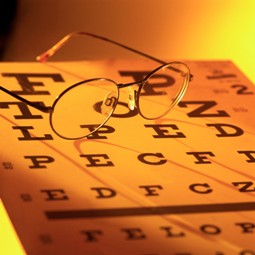Hope for Type 2 Diabetes Patients with Diabetic Retinopathy

Each year 7.5 percent of diabetics will get diabetic retinopathy and as of now, there is no cure. But there is hope. A new treatment may be able to reduce the damage caused by diabetic retinopathy.
What is this New Treatment?
During the Action to Control Cardiovascular Risk in Diabetes (ACCORD) Eye Study, researchers were able to slow down diabetic retinopathy and limit the vision damage it causes. Participants living with Type 2 diabetes for the past 10 years tried different treatments to control their:
Over four years, they found that intensive blood sugar control was effective for controlling the disease. When compared to regular blood sugar control, intensive blood sugar control was able to slow the disease by one-third.
And that’s not all. According to the National Eye Institute (NEI), the ACCORD Study also shows that combined therapy with fenofibrate and simvastatin may be helpful. Over four years the therapy was able to slow down the disease by about one-third as well.
What are Ways to Protect My Vision?
If you have Type 2 diabetes or are at high risk for developing the disease, please visit Diabetics—Keep Your Sights on Vision Health for ways to protect your eyesight.
The ACCORD eye study was supported by the National Institutes of Health (NIH).
Hope Through Research – You Can Be Part of the Answer!
Many research studies are underway to help us learn about eye diseases. Would you like to find out more about being part of this exciting research? Please visit the following links:
- NIH Clinical Research Trials and You
- Diabetes Eye Disease Studies
- NetWellness Research Center
- ClinicalTrials.gov Explained and Find Studies on ClinicalTrials.gov
- ResearchMatch Explained and Join ResearchMatch
This article is based on information provided by Prevent Blindness Ohio and was adapted for use on NetWellness with permission.
For more information:
Go to the Eye and Vision Care health topic.